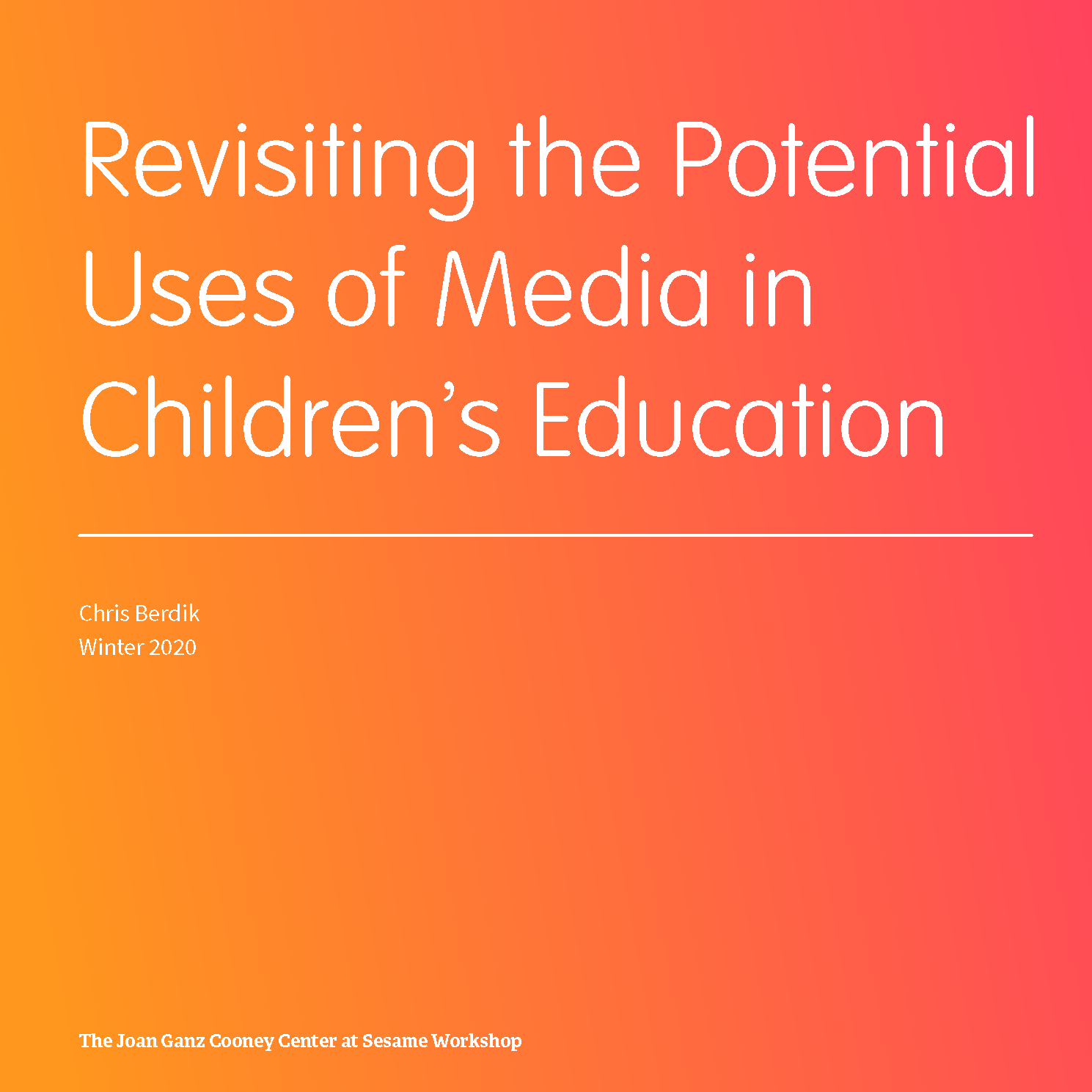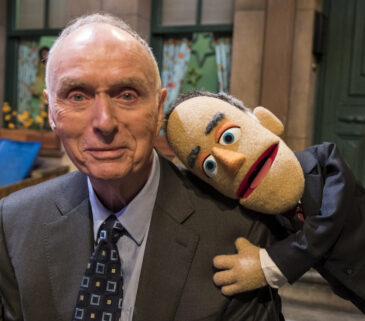
Lloyd Morrisett (November 2, 1929 – January 15, 2023) was the co-founder of Sesame Street and Children’s Television Workshop, and a founding board member of both the Workshop and the Joan Ganz Cooney Center. It is hard to overstate the value of his clear vision, his wise leadership, and his enduring impact on children and families, public media, and society at large. Today we honor him by inviting individuals who knew him well or worked with him to share a favorite memory or a reflection on his life and legacy.
My own first encounter with Lloyd took place in early 2019 when he traveled to NYC for a meeting of the Sesame Board of Trustees. I remember feeling nervous and excited to be in his presence.
Lloyd was known for being an intensive listener and for asking the most insightful questions. True to form, he was eager to discuss the potential for AI to transform learning for children and was curious to know what I thought of its potential for education and how we might approach it. We were still years away from “generative AI” and “large language models” becoming (almost) household terms.
I asked him about his chief concerns in the early days of Sesame. He very openly shared that he and Joan were most preoccupied with the question of whether the program would last beyond its first season. Fortunately for all of us, Sesame Street survived and then some, becoming not only the global cultural force we know today but also the blueprint for all future children’s media, and a lighthouse for child-centered research as the means of ensuring positive outcomes and the ability to reach kids everywhere.
With gratitude to Lloyd, for everything he gave us, and to our colleagues for sharing their own memories with us here.
 |
 |
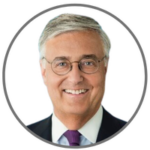 |
 |
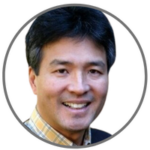 |
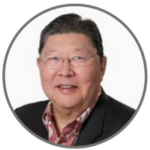 |
 |
 |
 |
 |
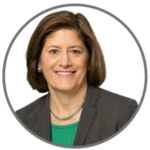 |
 |
Steve Youngwood
CEO, Sesame Workshop

I joined the Workshop in 2015 and was fortunate enough to meet and spend time with Lloyd Morrisett on several occasions in person before COVID hit. Those moments always left a mark on me. His kindness, insight, thoughtfulness, support, and passion for the work we do.
At the same time, some of the deepest and most powerful memories were his emails through the years. Lloyd attended every Board Meeting, listened, and reflected. He also remained a student of the media, technology, and education sectors and was always focused on what was next, putting forward questions or ideas of where the Workshop could go to deliver on its mission. Innovation, technology, and impact were where his heart was and I treasured how his probing and insight would make me think in different ways.
Looking back at just a few of the emails, I am amazed at how insightful he was.
In 2017, he sent me a long note about the prospects of AI. Here we are in 2023, with ChatGPT being adopted in everything we do. In 2018, he suggested we start using Zoom to hold meetings when everyone could not be there in person, saying that “I think it can solve a technological problem that will be very useful.” (This was pre-COVID!). In 2018, he probed again on AI and digital interactive, in 2019 on using YouTube for learning foreign languages, and in 2020, he wanted to make sure our new toy deal embraced electronic toys and voice recognition.
Lloyd never let himself get stuck in the past and was always preaching one of the North Stars on which the Workshop was founded – how the newest technologies can be embraced to further the Workshop and early childhood education.
I know I will not be getting any more of these emails, but I am still guided by asking myself what would Lloyd think or do as we map out the Workshop’s future.
Sherrie Westin
President, Sesame Workshop
 I am so grateful to have had the privilege of working with and learning from Lloyd.
I am so grateful to have had the privilege of working with and learning from Lloyd.
Over my years at Sesame, he always made a point to come by my office whenever he was at the Workshop. He was always so engaged and full of ideas!
Lloyd took the time to mentor so many. Years ago, a graduate student tracked down Lloyd to interview him about the origins of Sesame Street. Typical of Lloyd, he took her under his wing and stayed in touch with her. After he passed, she shared with me that she once asked him why he was always willing to make time for her over the years, and he said he wanted to stay in touch with young people to learn from them and keep up with the times.
One of his most endearing qualities was his humility. During our 50th anniversary year, I was often in conversations with Lloyd, trying to convince him to allow us to honor him, or to be willing to be a Kennedy Center Honoree. His first reaction was always to remind me how many others had contributed to the success of Sesame Street.
Even though, as we all know – and as Joan has stressed so many times – without Lloyd, there would be no Sesame Street!
Jeffrey Dunn
Former President & CEO, Sesame Workshop
 I will always remember Lloyd for the gentle soul and gentleman he was. Early in my tenure as President & CEO, Lloyd asked me if I had ever thought about Sesame Workshop having an alumni organization. I replied that one of my surprises upon joining was that we didn’t have one and I thought it was a great idea. Out of that conversation the idea for what became SWAN was born. He understood that the passion for helping kids everywhere grow smarter, stronger, and kinder never left you even when you left Sesame Workshop. Some people leave the world a better place than they found it. Lloyd was one of those people. He will be greatly missed.
I will always remember Lloyd for the gentle soul and gentleman he was. Early in my tenure as President & CEO, Lloyd asked me if I had ever thought about Sesame Workshop having an alumni organization. I replied that one of my surprises upon joining was that we didn’t have one and I thought it was a great idea. Out of that conversation the idea for what became SWAN was born. He understood that the passion for helping kids everywhere grow smarter, stronger, and kinder never left you even when you left Sesame Workshop. Some people leave the world a better place than they found it. Lloyd was one of those people. He will be greatly missed.
Gary Knell,
Former President and CEO, Sesame Workshop
Senior Advisor, Boston Consulting Group
 Lloyd Morrisett was always one to challenge the norm, pushing the edges to make America a better place.
Lloyd Morrisett was always one to challenge the norm, pushing the edges to make America a better place.
He could be personally challenging, continuously tasking his colleagues and staff to work for more and never settle for the status quo which he viewed as mediocrity.
When I was made President and CEO of Sesame Workshop a couple of decades ago, he pressed me for a greater vision and a risk profile beyond the current state of affairs. I somehow convinced him
I was worth taking a risk on. From that day forward, we expanded Sesame Street’s profile globally and leaned into other research based efforts on aimed at using media to help inspire and educate kids. Lloyd became a wonderful mentor and inspiration to me.
Rest in peace.
Milton Chen
Senior Fellow and Executive Director, Emeritus, The George Lucas Educational Foundation
Former Board of Trustees, Sesame Workshop
 Lloyd Morrisett was a deep thinker and brave innovator who carried himself with simplicity and humility. In 1967, a group of male foundation leaders who had funded the feasibility study carried out by Joan Cooney met to discuss next steps and who would lead the fledgling organization. They floated some names, all men, believing that a man was needed to be taken seriously in the worlds of foundations, government, and media. Lloyd said, “Joan has done the study, she knows more about this than anyone else, she deserves to lead this.” He persuaded them.
Lloyd Morrisett was a deep thinker and brave innovator who carried himself with simplicity and humility. In 1967, a group of male foundation leaders who had funded the feasibility study carried out by Joan Cooney met to discuss next steps and who would lead the fledgling organization. They floated some names, all men, believing that a man was needed to be taken seriously in the worlds of foundations, government, and media. Lloyd said, “Joan has done the study, she knows more about this than anyone else, she deserves to lead this.” He persuaded them.
He had an amazing ability to convey wise insights in a sentence or two. I remember one conversation about public television, its potential as well as its limitations. Lloyd simply said, “They have the wrong business model.”
Lloyd’s most expansive commentaries on technology, media, children, and education can be found in his annual essays for the Markle Foundation. Over the years, I’ve enjoyed reading them, watching his mind at work. Lloyd was a futurist. He had a special crystal ball and could see the future. His observations on the promise of the personal computer in 1982 in “The Computers are Coming” outline many of the key issues our society is still grappling with, 40 years later.
Lloyd also saw the potential of technology for older citizens in his 1988 essay, “Aging in America: New Issues, New Opportunities.” That essay begins with his memory as a young boy, on their summer visits from New York to see his grandparents in Oklahoma. That’s how I’d like to remember Lloyd, a boy sitting next to his grandfather in a rocking chair on the front porch in a small town, reflecting on how different their worlds were, not yet knowing how he would change the world for so many millions of children in the future.
Ellen Wartella
Professor, Northwestern University
Former Board of Trustees, Sesame Workshop

I first met Lloyd when he came to a conference at the LBJ School at the University of Texas at Austin when I was dean of the College of Communication there. I spoke at a morning session and he came up to me afterward and invited me to lunch. I knew he was the head of the Board of Trustees of Children’s Television Workshop and much to my surprise, delight, and honor, he asked me to consider joining the board. I of course said yes. From that first meeting, I knew him to have a quiet, reserved manner but one of great strength and intelligence. It was after I joined the board that I realized as well what a powerful leader and board chair he was. At that time I had a board of advisors (including alumni and media leaders from around Texas) and I never felt I worked with my board very well. But watching Lloyd taught me how to be a much better listener at board meetings and much more attuned to the board’s concerns they were trying to tell me. He taught me how to work with my board and how to be a board member who only addressed issues I really knew something about and to listen. He was a wonderful man and will be missed.
Jeff Watanabe
Retired Founder, Watanabe Ing LLP,
Board of Trustees, Sesame Workshop
 Lloyd’s public image is understandably defined by his question to Joan at their fateful dinner which gave birth to Sesame. As significant as that encounter was, Lloyd was much more than that. He was also a thoughtful observer of media and journalism well beyond children’s programming. As president of the Markle Foundation and part of the RAND Corporation, he was actively involved in funding and advocating for investigative journalism, public dialogue, and access.
Lloyd’s public image is understandably defined by his question to Joan at their fateful dinner which gave birth to Sesame. As significant as that encounter was, Lloyd was much more than that. He was also a thoughtful observer of media and journalism well beyond children’s programming. As president of the Markle Foundation and part of the RAND Corporation, he was actively involved in funding and advocating for investigative journalism, public dialogue, and access.
Lloyd was a thought leader whose vision was always on the horizon and beyond. Long before it was mainstream, he believed electronic mail might connect citizens more closely and computers and the internet could enrich the lives of the elderly. He also saw the potential impact of a fledgling CNN on the political landscape. Lloyd’s vision and stunning testimony on the potential social value of cable television was instrumental in Sesame being awarded a Hawaii CATV license, the ultimate sale of which became the core of Sesame’s endowment, or as Lloyd referred to as our “Fund for Future Projects”.
He rarely, if ever, missed board meetings and it was never his objective to show people how smart he was. When he did speak, it was generally significant. Fortunately for me, Lloyd and Mary were big fans of the Big Island of Hawaii where we often met. It provided time for relaxed thought-sharing conversations which I will never forget. For me, Sesame has been a life-altering and enriching experience. My thanks and aloha go to Lloyd and Joan for allowing me to be part of their journey. Thank you for keeping Lloyd’s dream alive.
Aloha.
Lewis Bernstein
Former Executive Vice President of Education Research and Outreach at Sesame Workshop
 Lloyd.
Lloyd.
How do you write a tribute to a man like Lloyd?
I worked at Sesame Street for over 43 years, and I still don’t think I really knew him, although I do have distinct impressions of Lloyd from across the decades.
When I began working at the Workshop in 1972, Lloyd seemed to me, like so many others at the workshop, larger than life. A visionary, who together with Joan, helped make that vision a reality.
I knew he was a Ph.D. in Experimental Psychology from Yale, and had studied with Gerry Lesser, whom I worked closely with. Lloyd applied his skills in theory and learning to a canvas larger than most – attempting to affect the education and culture of caring for children for an entire nation, through Sesame Street. He desired to affect real measurable change. He wanted to provide evidence of growth and impact on what we call “hard skills,” demonstrating that preschool children— regardless of income level, race, zip code—could master the skills necessary to succeed in America: literacy, numeracy, science. This, while never ignoring the need to teach the “soft skills” of respecting differences, so that our nation’s children could become educated enough to help this country of ours grow intelligently, socially, morally.
I had little contact with Lloyd in my early decades at the Workshop. From the distance, he frankly seemed pretty scary to me, looking like he came out of the famous painting “American Gothic” by Grant Wood. He was stern-looking, unsmiling, serious. He was the Chair of the Finance Committee and Endowment Fund when I first encountered him at Board meetings. I was acting as the executive producer of Sesame Street at the time, and we often made reports to the Board. Our Board consisted of many outside brilliant financial types and heads of companies over the years. Many asked complicated questions, but sometimes with an attitude. Lloyd asked questions to make you think about issues you may not have thought about before. He asked these questions with a great deal of respect for the staff, with no antagonism. And through those encounters my American gothic first impressions changed dramatically: he was someone with great sensitivity and compassion, and with a great, often unexpected laugh. Lloyd had a broad intellect and the know-how, together with Joan and others, to keep the company alive and thriving, both financially and programmatically
At the founding of the Joan Ganz Cooney Center, Lloyd wanted the Center to be an advance scout, both gathering and performing research on children and new technologies, and how they could positively affect learning. He wanted the Center to explore new findings in the world of science and share how they might affect what we do at the Workshop, and the fields of education and media in general. He continued to want to apply new findings from basic science to practically benefit children.
When I retired, Lloyd shared with me his strong endorsement of the idea of Sesame Alumni applying their experience and wisdom to extend the Workshop’s impact. Together with many of my Sesame Alum colleagues, we are trying to do just that. May his memory serve as a beacon for continued growth for the Workshop and for the nation.
Michael Levine
Former Executive Director, Joan Ganz Cooney Center
SVP, Nickelodeon

Lloyd and I had many conversations dating back nearly two decades. He was on the Joan Ganz Cooney Center’s founding board with Joan Ganz Cooney and Gary Knell, when we launched in 2007. His input was remarkably kind and generous: his quiet and wise guidance centered on “building a field” that he and Joan practically invented themselves with the launch of Sesame Street and CTW three decades earlier. And as was typical of all of our teams’ interactions, Lloyd led every conversation we had with humility and deep respect.
Lloyd and I shared a passion for innovation and research—he often sent me articles to read on the latest advances in neuroscience, AI or machine learning. Or he would call to suggest I listen to a pitch from an interesting start-up. When our team wanted to think about a new line of research, Lloyd always was ready to advise on how the work might be made bigger, more important. He was a true visionary—I will always remember conversations with him about the origins of Sesame Street when he was a program officer at Carnegie Corporation of New York. That story of his first encounter with Joan at a NYC dinner party is legendary, of course. But what he took away from it to share was deeply powerful. He taught me about the art form of what Joan had done by “simply listening.” It was his advice that led me to do my own “listening tour” when I founded the JGCC in 2007—Rima Shore and I spoke to about three dozen leaders in the emerging digital media space (pre-touchscreen and IOS/Android) and wrote The Power of Pow Wham, the first of the many dozens of thought leadership and research reports we went on to publish.
Lloyd reminded the Center team to have an open mind, to honor and advance the most humane uses of tech, and to make the Center a “collaboratory”—open to the best thinkers and doers. He was the catalyst for our “big picture” strategy. I trust that many more people will know of Lloyd’s seminal work as the history of this ubiquitous media era is written and digested over time. I can say with certainty that for the entire Center and Sesame family, his imprint on the children’s media field, and on every member of the staff is indelible!
Jim Gray
Founder, Future School
 I met Lloyd Morrisett just twice, but he influenced the trajectory of my whole professional life. In the 1980s I might never have worked at the University of Kansas, Center for the Influence of Television on Children (CRITC) if Sesame Street had not spawned a children’s educational television industry worth studying. In the 1990’s I might never have landed at the Harvard Graduate School of Education, Project Zero (PZ) research group if Lloyd — in his role at the Markle Foundation — had not funded Project Catalyst to investigate the educational potential of interactive technologies. I would never have had Gerry Lesser as a mentor for my doctoral studies if he had not been the founding developmental psychologist on the Sesame Street team. And, in the late 2010s I would not have been drawn to New York City by a position at Sesame Workshop, working with Rosemarie Truglio — whom I first met at CRITC many years before — if those offices overlooking Broadway had not been occupied by a cultural icon expanding its global influence once again (oh, and a decade of dinner table conversations would not have been nearly so Muppet-oriented if, in the late 2000s, my spouse had not directed the educational impact of Sesame in South Africa, Tanzania, and India).
I met Lloyd Morrisett just twice, but he influenced the trajectory of my whole professional life. In the 1980s I might never have worked at the University of Kansas, Center for the Influence of Television on Children (CRITC) if Sesame Street had not spawned a children’s educational television industry worth studying. In the 1990’s I might never have landed at the Harvard Graduate School of Education, Project Zero (PZ) research group if Lloyd — in his role at the Markle Foundation — had not funded Project Catalyst to investigate the educational potential of interactive technologies. I would never have had Gerry Lesser as a mentor for my doctoral studies if he had not been the founding developmental psychologist on the Sesame Street team. And, in the late 2010s I would not have been drawn to New York City by a position at Sesame Workshop, working with Rosemarie Truglio — whom I first met at CRITC many years before — if those offices overlooking Broadway had not been occupied by a cultural icon expanding its global influence once again (oh, and a decade of dinner table conversations would not have been nearly so Muppet-oriented if, in the late 2000s, my spouse had not directed the educational impact of Sesame in South Africa, Tanzania, and India).
Across four decades, I studied, worked, and lived in a world of research-based children’s media that Lloyd helped to define. I appreciate the powerful vision, commitment, and sustained influence that he gave to that field. As a new doctoral student apprenticing myself to PZ-style research and development, I fondly recall singing “Happy Birthday” to Lloyd in the Project Zero offices when he was a mere 60 years old. Later, I thanked him for the scope of his work during a Sesame Workshop Board meeting, as he was approaching 90. Now, with him gone, I am both grateful for his influence on how children learn and develop in our mediated world, and inspired by the strength of his sustained work. We can all strive for such a life well lived.
Beth Cobert
Acting President, Markle Foundation
 “The vision and leadership that Dr. Morrisett brought to bear when he was at the helm of the Markle Foundation will forever be ingrainedengrained in our Foundation. He was a transformational leader who saw a foundation as a catalyst – not simply a provider of funding – to provide the necessary expertise and guidance that will support an idea to become successful over time. We continue to embrace this approach at Markle and to hear from staff who were drawn to our organization because of Dr. Morrisett’s work. Nearly twenty years after he left the Foundation, Dr. Morrisett’s legacy continues to inspire and motivate our team, and helps us keep us pushing the boundaries of what we might be able to achieve.”
“The vision and leadership that Dr. Morrisett brought to bear when he was at the helm of the Markle Foundation will forever be ingrainedengrained in our Foundation. He was a transformational leader who saw a foundation as a catalyst – not simply a provider of funding – to provide the necessary expertise and guidance that will support an idea to become successful over time. We continue to embrace this approach at Markle and to hear from staff who were drawn to our organization because of Dr. Morrisett’s work. Nearly twenty years after he left the Foundation, Dr. Morrisett’s legacy continues to inspire and motivate our team, and helps us keep us pushing the boundaries of what we might be able to achieve.”
Dixie Ching
Senior UX Researcher, Google
 My last interaction with Lloyd Morrisett was during a board meeting back in 2009, when I was working at the Joan Ganz Cooney Center as their research and communications manager. I had decided to enroll in a full-time PhD program at NYU, and that meant unfortunately leaving the Cooney Center. We added that news as part of our update during the meeting and when it was over, Dr. Morrisett walked over to me, extended his hand, and said a few words expressing his gratitude and well wishes. The small but heartfelt gesture completely caught me by surprise and, perhaps because it was so unexpected, it remains one of my most vivid and cherished memories. Thank you Dr. Morrisett, for the kindness you showed me and to everyone who was fortunate enough to have known you.
My last interaction with Lloyd Morrisett was during a board meeting back in 2009, when I was working at the Joan Ganz Cooney Center as their research and communications manager. I had decided to enroll in a full-time PhD program at NYU, and that meant unfortunately leaving the Cooney Center. We added that news as part of our update during the meeting and when it was over, Dr. Morrisett walked over to me, extended his hand, and said a few words expressing his gratitude and well wishes. The small but heartfelt gesture completely caught me by surprise and, perhaps because it was so unexpected, it remains one of my most vivid and cherished memories. Thank you Dr. Morrisett, for the kindness you showed me and to everyone who was fortunate enough to have known you.
